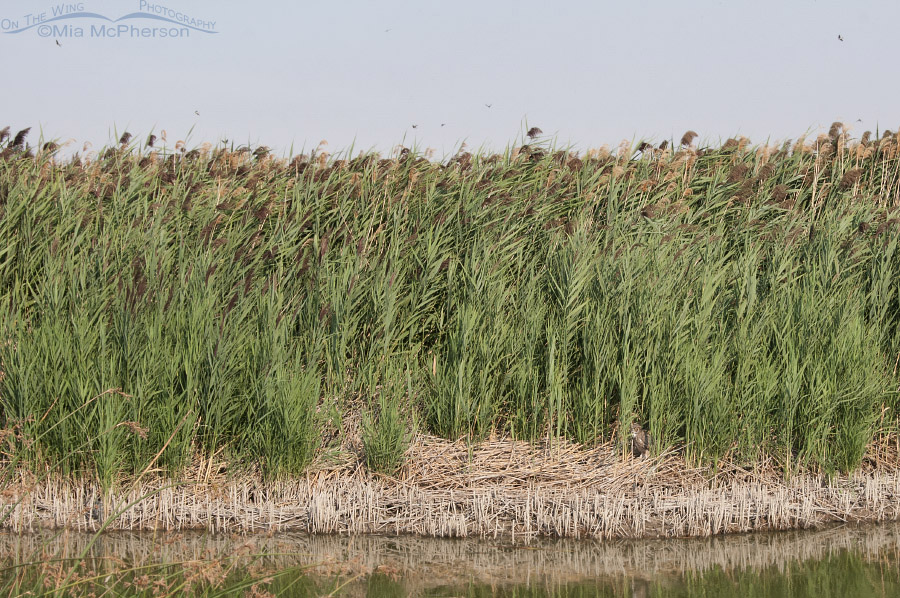 Great Horned Owl in a marsh
Great Horned Owl in a marsh
Last month I wrote about how surprised I was to spot a Great Horned Owl in the marsh at Bear River MBR in northern Utah and said I would post more photos later, so here they are.
I wrote:
I saw a Great Blue Heron out in the open in the marsh of Bear River Migratory Bird Refuge on the south side of the auto tour route. For a split second I looked down at my camera to check my settings and when I looked back up the heron was gone. I felt some disappointment but thought maybe the heron had just moved a little and because of that I kept my eye out for it further up the road. Just a little bit further up the road I saw a shape, feather patterns, and face that I recognized immediately but it wasn’t a heron at all.
What I found was a beautiful Great Horned Owl nearly hidden in the vegetation along the marsh! I’d never seen a Great Horned Owl at Bear River wetlands before so I was ecstatic and took way too many photos of it but it isn’t every day I spot this species of owl in a marsh, so why not?
I have that Great Blue Heron and my keen eyesight to thank for finding the owl because if it hadn’t been for it and trying to locate it again I might not have been paying such close attention to the area I found this owl in. Thanks Great Blue!
This first image shows the Great Horned Owl in the marsh taken with my D300 with the 18-200mm VR lens attached at 52mm. See the owl?
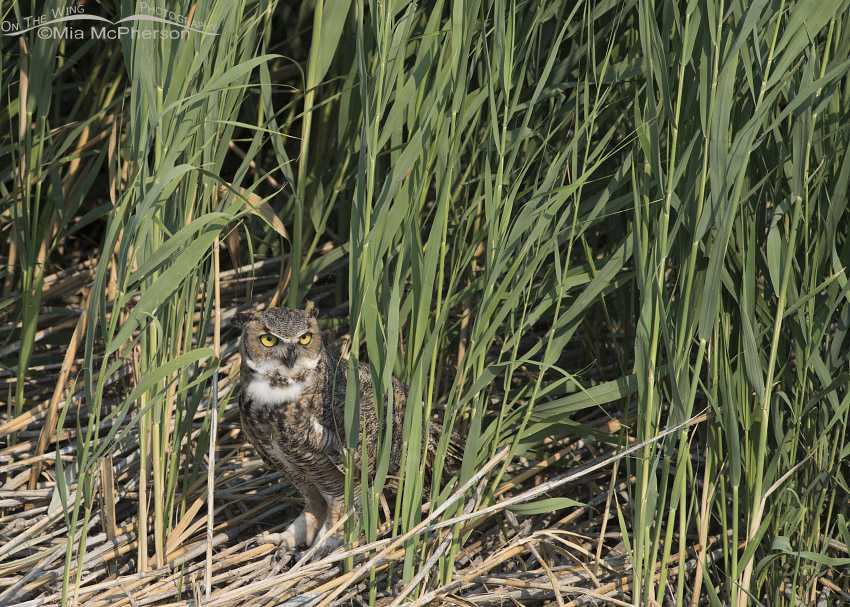 Bear River Marsh and a Great Horned Owl
Bear River Marsh and a Great Horned Owl
The Great Horned Owl may have been hunting in the marsh, there is no way for me to be absolutely certain of that however. But it did take me by surprise at first to see it there.
Then I realized I have seen Great Horned Owls in swampy areas in Florida and near wetlands in Virginia too so maybe I shouldn’t have been surprised.
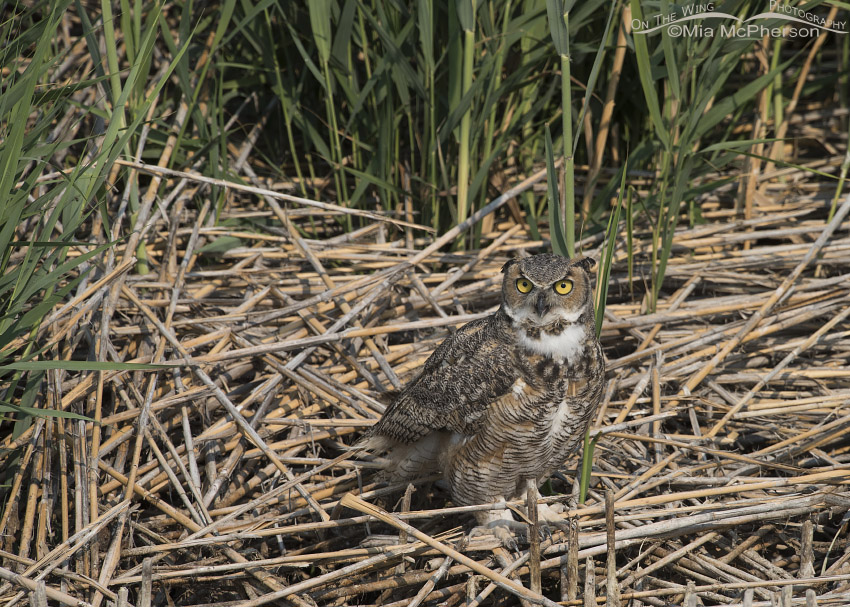 Great Horned Owl on a pile of phragmites
Great Horned Owl on a pile of phragmites
But this was my first time seeing a Great Horned Owl in the marshes at Bear River Migratory Bird Refuge and it was very exciting for me.
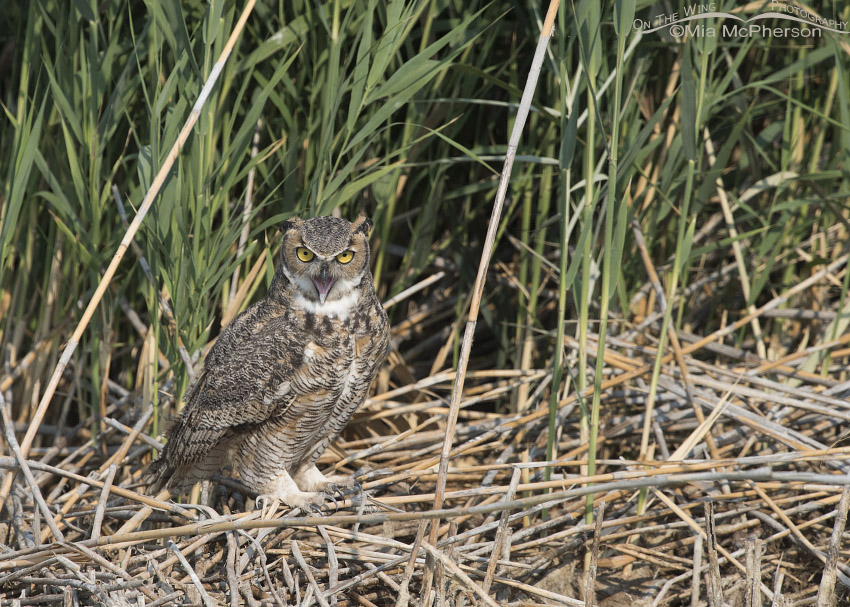 Great Horned Owl gular fluttering behavior
Great Horned Owl gular fluttering behavior
It was hot that day and the Great Horned Owl spent a great deal of time fluttering its gular pouch. This behavior is seen in owls, cormorants, boobies, anhingas, herons, doves, roadrunners, and members of the rail family. By opening their bills and fluttering their neck muscles they promote heat loss which helps them cool down on hot days. This is like a dog panting on a hot day to stay cool.
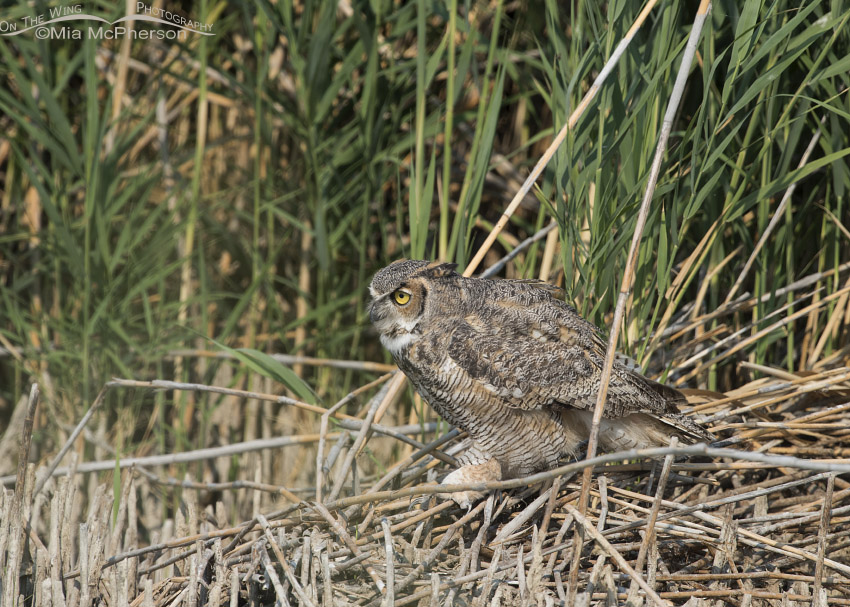 Great Horned Owl in the marsh at Bear River MBR
Great Horned Owl in the marsh at Bear River MBR
I had hoped to get flight images of the owl but one time I had looked down to change a setting when it lifted off for another mound dead phragmites and the second time when it flew off deeper into the marsh all I got were butt shots.
Oh well.
Life is good.
Mia
Click here to view more of my Great Horned Owl photos plus facts and information about this species.


How did you ever spot this owl?? I guess maybe your camera did it for you, hmmm? This set goes on to the grand-daughters!
I am so grateful for your eagle eyes. For your eagle owl-spotting eyes.
This is a beauty. I am glad you described the fluttering of the gular pouch. I saw this with a group of Cormorants and wondered what it was about.
Very interesting hunting setting for a Great Horned…would not have expected to see one in a marsh, in day light. Also interesting to find out what I thought was “panting” really is called and how it works…
great shots of the owl. Was it hunting to feed chicks during the day?
I would never have thought of a Great Horned Owl in a marsh setting. Wonderful find & wonderful photos.
Beautiful photos, Mia. Quite unusual to spot this behavior in an Owl.
Cool!